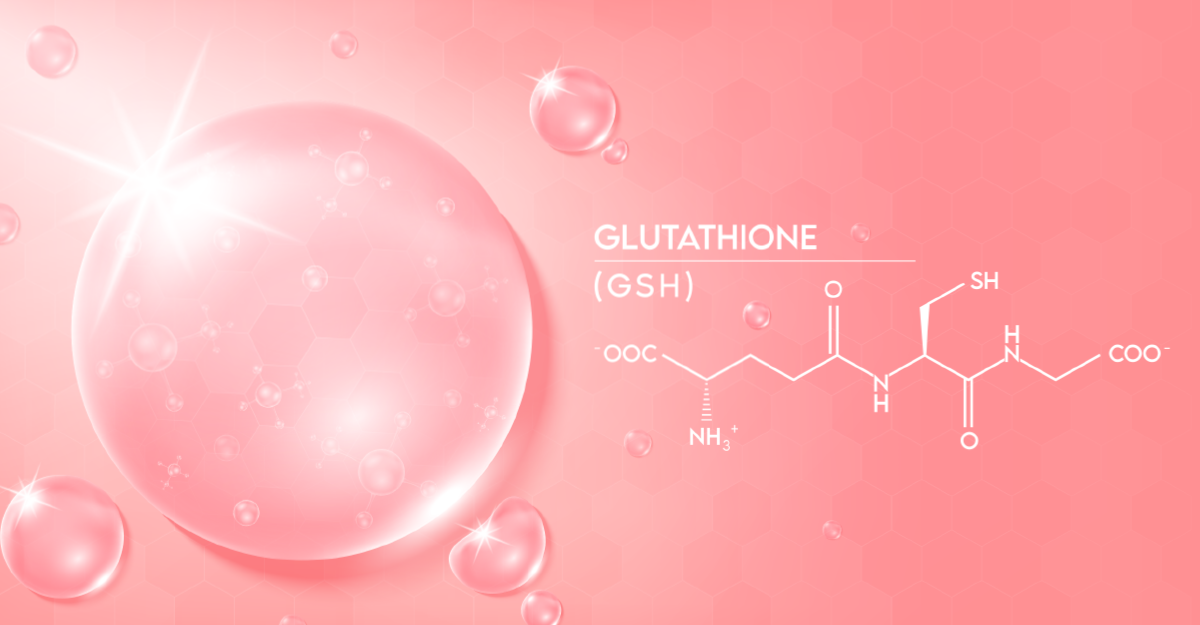
What is Liposomal Glutathione?
Taking liposomal glutathione is the most effective supplemental form of glutathione and the best way to increase levels. But before we dive into our topic, what is liposomal glutathione, let's step back and cover the critical role glutathione plays in health and longevity and how you can benefit from optimal levels.
"Taking liposomal glutathione is the most effective supplemental form of glutathione and the best way to increase levels."
Keep reading to learn more about:
● What is glutathione?
● Glutathione deficiency
● Limitations of glutathione supplements
● Liposomal glutathione and raising glutathione levels
What is Glutathione?
Glutathione, known as the "master" antioxidant, is the most abundant antioxidant made by the body. Cells make it from three amino acids: cysteine, glutamate, and glycine. Inadequate protein, B vitamins, and methylation can inhibit its production. Oxidative stress and toxins can drain glutathione, increasing the body's requirements. (Source 1)
Glutathione plays a critical role in every cell in the body. It's crucial for immunity, detoxification, antioxidant regeneration (vitamin C and vitamin E), and protection against oxidative stress. (Source 1, 2, 3)
Read more about glutathione in 14 Benefits of the Master Antioxidant.
Without enough glutathione (glutathione deficiency), you can experience impaired immunity and increased susceptibility to oxidative stress and damage from toxins. Glutathione deficiency is associated with an increased risk of chronic disease, including
● Cancer
● Diabetes
● Heart disease
● Liver disease
● Autoimmune disease
Low glutathione is also associated with aging. (Source 1, 3)
Glutathione Supplements (And Their Limits)
Because glutathione is an antioxidant, it has two forms: reduced and oxidized. The reduced form can neutralize free radicals, but then it becomes oxidized and must be recycled back to the reduced form. Healthy cells have more of the reduced form than the oxidized form. (Source 3)
When you put glutathione in a supplement, there are several issues. The first issue is that it becomes oxidized. The other is it can break down in stomach acid, requiring the body to put it back together (which is nutrient intensive). These issues might explain why some studies find no change in blood glutathione levels with supplementation. (Source 3)
You can support healthy glutathione levels with dietary measures and including the following foods in the diet:
● Protein, especially whey protein
● Brassica vegetables (broccoli, brussels sprouts, kale, cauliflower, collards, etc.)
● Green tea
● Polyphenols from fruits and vegetables
● Glutathione-rich foods: avocados, spinach, asparagus, cucumber, green beans (Source 2)
A nutritious diet is foundational in the functional medicine approach. Still, some people will benefit from increasing glutathione levels more than nutrition or common supplements can help.
"A nutritious diet is foundational in the functional medicine approach. Still, some people will benefit from increasing glutathione levels more than nutrition or common supplements can help."
Liposomal Glutathione
Liposomal glutathione is the answer! The liposome delivery vehicle creates a protective barrier around the glutathione molecules, so they survive the digestive tract in the preferable reduced state. The liposome absorbs into the bloodstream and delivers glutathione to cells, making supplementation much more effective.
In a one-month study, 12 adults were given oral liposomal glutathione, 500 mg or 1000 mg daily. Researchers monitored their glutathione levels throughout the study. After only one week, researchers found an up to 40% increase in glutathione levels in whole blood and up to 25% increase within red blood cells. (Source 1)
While this study was small, it's highly encouraging and validates what functional medicine doctors see in practice. The study concludes: "Preliminary findings support the effectiveness of daily liposomal GSH [reduced glutathione] administration at elevating stores of GSH and impacting immune function and levels of oxidative stress." (Source 1)
Additionally, the study showed that both doses (500 mg and 1000 mg) seemed to work equally well, suggesting the benefits of liposomal glutathione, even at lower doses. (Source 1)
"Additionally, the study showed that both doses (500 mg and 1000 mg) seemed to work equally well, suggesting the benefits of liposomal glutathione, even at lower doses."
Core Med Science Liposomal Glutathione
Core Med Science is a leader in liposomal technology and offers quality, effective products. Core Med Science Liposomal Glutathione (Liquid) provides 500 mg glutathione in each 4 ml (3/4 teaspoon) serving. The liquid preparation allows you to easily adjust the dose based on your functional medicine provider's recommendations.
Core Med Science Liposomal Glutathione (Softgels) provides 500 mg of glutathione in each 2-capsule serving. If you aren't sure which product to choose, different forms of liposomals can help.
Both liposomal glutathione supplements use a phospholipid complex derived from sunflower and are soy and GMO-free.
Liposomal glutathione offers the most effective method for increasing glutathione levels in the body and reaping the health benefits of this master antioxidant. Why choose a supplement that doesn't work when you can choose Core Med Science?
References:
- Sinha, R., Sinha, I., Calcagnotto, A., Trushin, N., Haley, J. S., Schell, T. D., & Richie, J. P., Jr (2018). Oral supplementation with liposomal glutathione elevates body stores of glutathione and markers of immune function. European journal of clinical nutrition, 72(1), 105-111. Full text: https://www.ncbi.nlm.nih.gov/pmc/articles/PMC6389332/
- Minich, D. M., & Brown, B. I. (2019). A Review of Dietary (Phyto)Nutrients for Glutathione Support. Nutrients, 11(9), 2073. Full text: https://www.ncbi.nlm.nih.gov/pmc/articles/PMC6770193/
- Pizzorno J. (2014). Glutathione!. Integrative medicine (Encinitas, Calif.), 13(1), 8-12. Full text: https://www.ncbi.nlm.nih.gov/pmc/articles/PMC4684116/
